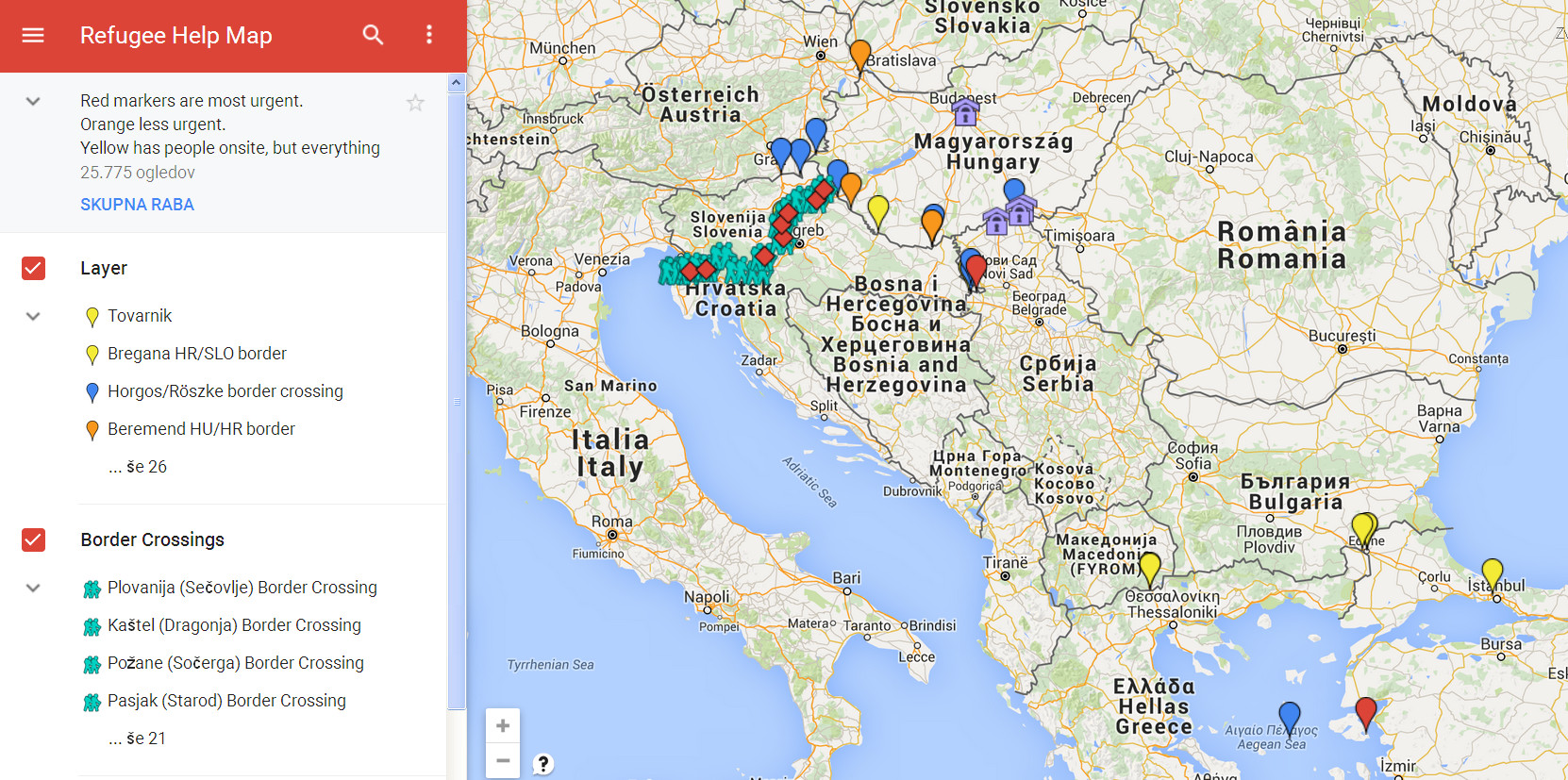As Michael Goodman and I tried to whimsically note in the sub-title of our edited collection on intelligence and the media – media needs intelligence and intelligence needs the media. The symbiosis of this relationship can be partly found in common expertise and practices (investigative zeal and tradecraft around weeding out hidden empirical detail), but also in the political or normative function of intelligence agencies, namely to constrain and repel certain forms of political discourse and activity deemed to be abhorrent to the majority, but more particularly which is abhorrent to the established political elites. So, at a very basic level media outlets learn much from the activities of intelligence agencies and the business they engage in. Similarly the agencies have both used mainstream media to shape debates (the Cold War and the War on Terror were notable examples), and to position adversaries in a particular way (and this might apply to every conflict since the printing press was invented). But what I want to rehearse here are the particular ways in which mainstream and parallel media sources – with a particular emphasis on the UK – have coalesced and acted within the NSA/Snowden furore, and the lessons we can learn from this.
My first lesson privileges the position of the mainstream press. Put simply, without the mainstream paid-for press there would have been no Snowden-NSA scandal. There is an important pre-caveat when referring to the ‘Snowden material’, which is that virtually none of the stated cache has been made publicly available, much of what we know has passed through the filter of media organisations and as such has been précised or synthesised, and that which has still to make it into the open will not do so in raw form. So, there is an important distinction to be drawn between Wikileaks – for example – which has published redacted raw material, and overlaid analysis with it – and the Snowden material which has almost exclusively been published in synthesised form. Snowden has stated that he did not seek to do damage to US national interests, nor to cause revolution, but instead to provide the framework or opportunity through which the public could make judgements about how this important area of government activity should be framed, or limited. This perhaps helps us to understand his dissemination strategy, but either way it is clear that Snowden would not have been able to achieve his ends without the mainstream media to position stories in the way they have.
It is, however, both ironic and curious that a dissemination strategy premised on withholding the raw material has arguably had a greater impact on the political discourse than the various and transparent Wikileaks stories have had, Cablegate included. Part of the causal explanation for this is ‘our’ connection to the story: Cablegate was concerned with diplomatic cables between elites remote from ‘us’. Snowden’s revelations were about ‘our’ electronic communications and signals being interfered with. The other part of the equation sits in the way that this story existed in a reinforcing ecosystem between the print, visual and audio medias, governments (and note the strong use of media messaging by Latin American and European governments, save for the UK) and international organisations such as the EU, along with extensive commentary in independent and social media outlets. A vortex of opinion was created in a way that never happened with similar revelations around Cablegate, or in the late 90s and early 2000s around the antecedent ECHELON programme. Traditional print media was the trigger movement for the spontaneous formation of this ecosystem.
My second lesson demonstrates the power of the geographically bound nature of intelligence and law, despite all the evidence to the contrary. Snowden and those who helped him with dissemination had understood the lessons of Wikileaks well: multi-jurisdictional and synchronised release of information. This is a risk-mitigation strategy, and one that has worked flawlessly well on the occasions it has been used. It removes the problem of a single point of failure and exposes a flaw and tension in globalised communications: that it is virtually impossible to stop communication in another territory. So, if Snowden has chosen only to publish in the UK, it would have been relatively easy to place an injunction on The Guardian preventing publication, and then presumably D-Notice to prevent other UK-based outlets commenting upon it. By releasing across multiple jurisdictions the genie was out of the bottle before any single or multiple interested governments could intercede. Geographical binding was not just a problem for those who sought to contain or suppress this story (and to be clear: suppression was legally justified because the core documents were classified), but is a wider problem for intelligence activity and the oversight and control of it. The stories around rendition and torture, on the one hand, and around surveillance of foreign nationals (and how one can receive information about a foreign national from a foreign agency, which turns out to be a home national, but a legal leap of faith renders this acceptable) are good evidence of how globalisation has presented unparalleled opportunities and threats to the business of intelligence.
My final lesson is that of the media as a regulator. In an exchange of correspondence in the New York Review of Books, The Guardian newspaper’s editor, Alan Rusbridger and the chair of the UK oversight committee, Sir Malcolm Rifkind MP, sparred over the role of intelligence regulators. Rifkind’s core argument was that Rusbridger was not sufficiently au fait with the material (and its context) to know whether release was safe or desirable. The sad truth for Sir Malcolm and Parliament is that the Intelligence and Security Committee and the laws governing intelligence activity in the UK, in particular, have failed to keep up with the radical reorientation of intelligence activity in an area of ubiquitous electronic communication, and cheap storage and electronic analytical capability. As such the ‘regulation by revelation’ motif is one that will remain visible in the UK (and to some degree the US) as a check and balance on relatively unrestrained intelligence activity. We might reframe this in the following way: does the public response indicate that this issue is in the ‘public interest’? Almost certainly yes. Was this issue raised and analysed by official oversight mechanisms? No. So, we are left with competing and yet potentially complementary propositions that the official oversight mechanisms are not fit for purpose, that they did not deem this activity to be worthy of attention, or that they were unaware of the activity.
Parliament, backed separately by the courts, should be the appropriate institutions for oversight and check and balance. The media should be a soft-balancer for those exceptional moments of abuse or acts which are ultra vires. This particular balance went out of kilter with Snowden’s revelations, and it will be important for it to return quickly, there having been appropriate actions taken by the UK Parliament. As a footnote to this section it is worth mentioning that the British government has stood obdurately by the US Administration, and senior British figures have made bellicose noises about the impact that the revelations will have on the security of the US and UK. Senior intelligence figures (current and retired) have repeatedly condemned The Guardian in increasingly intemperate terms for publishing what appears to be – to most lay and expert readers – a set of practices that are deserving of public and political scrutiny, and which had been allowed to run loose from the intention of legislators. For reform to occur in the UK there will only need to be one conceptual shift and realisation: the weakening of communications security (by design) potentially makes London a less desirable location as a global finance hub. If finance firms cannot guarantee their communications they will find locations where they can – Germany would look like a good location for this, going forward – and the pattern of British politics is such that only this kind of spur will generate transformative change.
The traditional forms of media have historically been critical friends (but good friends nevertheless) to the intelligence agencies. Since June 2013, this relationship has become a little antagonistic because of the Snowden materials and the rapid (and temporary) formation of the self-perpetuating ecosystem as described above. No matter where one sits on the detailing of the privacy and intervention issues, it should be relatively uncontested that the traditional media has played an essential role in the oversight of this area of government activity, and in positioning the Snowden materials in such a way for international impact. It is a rare corrective to the dominant discourse of the ubiquity of social media.
—
Dr. Robert Dover is Associate Dean (Enterprise) and Senior Lecturer in International Relations at Loughborough University. Along with Michael Goodman and Claudia Hillebrand he is the editor of the new Routledge Companion to Intelligence Studies (2013).





